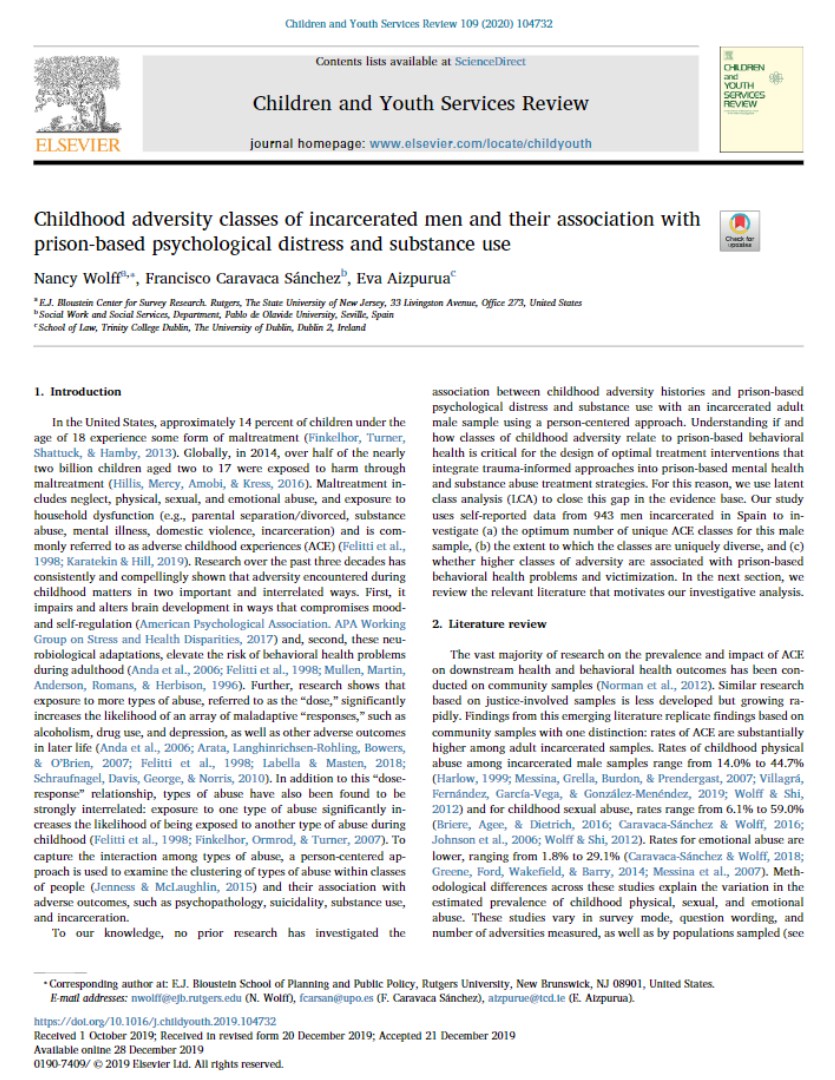The current article investigates the association between childhood adversity histories and prison-based psychological distress and substance use with an incarcerated adult male sample using a person-centered approach. Our study uses self-reported data from 943 men incarcerated in Spain to investigate (a) the optimum number of unique ACE classes for this male sample, (b) the extent to which the classes are uniquely diverse, and (c) whether higher classes of adversity are associated with prison-based behavioral health problems and victimization. This study used latent class analysis (LCA) methodology for the first time to examine the association between ACE classes and prison-based psychological distress, victimization, and substance use for a sample of incarcerated men. Our LCA analysis was based on seven different types of childhood adversity inclusive of household dysfunction and direct exposure to emotional, physical, and sexual abuse. The constellation of childhood adversity on prison-based behavioral health outcomes is significant and directly relevant to the identification, management, and treatment of behavioral health problems among incarcerate men. Preventing prison based sexual abuse through initiatives like the Prison Rape Elimination Effort (PREA) are first steps in the advancement of better behavioral health outcomes for incarcerated men. (PsycInfo Database Record (c) 2020 APA, all rights reserved)
Childhood adversity classes of incarcerated men and their association with prison-based psychological distress and substance use
Citation:
Wolff, N., Sánchez, F. C., & Aizpurua, E. (2020). Childhood adversity classes of incarcerated men and their association with prison-based psychological distress and substance use. Children and Youth Services Review, 109, Article 104732. https://doi.org/10.1016/j.childyouth.2019.104732
